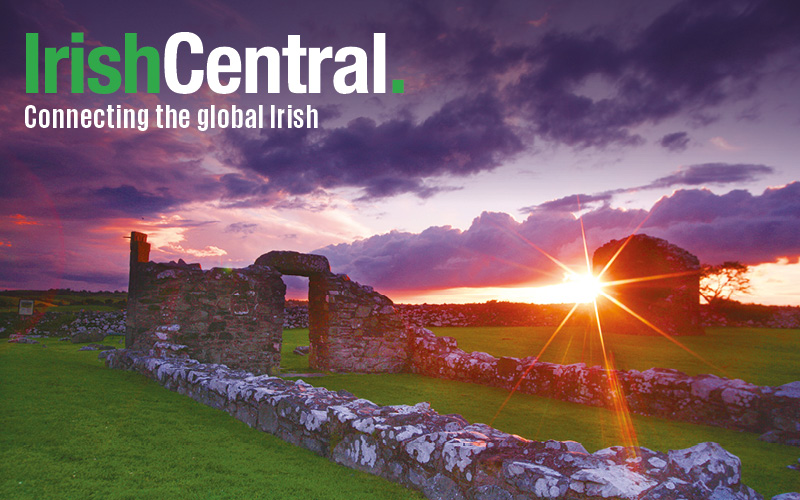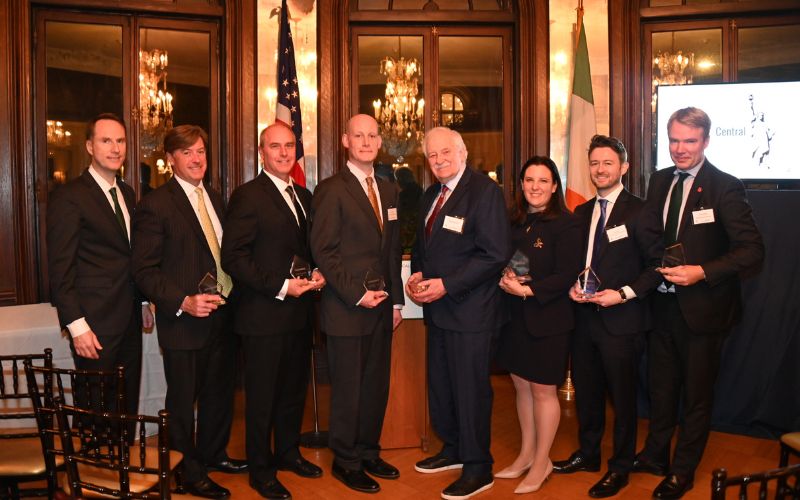Police Service of Northern Ireland (PSNI) Chief Constable George Hamilton and Northern Ireland Policing Board Chair Anne Connolly were in the US last week to attend a series of engagements in Washington and New York.
Meeting with politicians, academics and media representatives Hamilton outlined the ongoing challenges that the North's police service is currently facing.
“Every day across Belfast we have 100 plus officers who are additional to normal service just managing the interfaces,” Hamilton told IrishCentral. “They are just trying to keep people safe on both sides. On occasion keeping people apart is the way to keep them safe. When there's a lack of political consensus it creates this vacuum.”
Nevertheless the opportunity to build on the legacy of the peace process is one that Hamilton says he enthusiastically welcomes. “It's a challenging job and I relish it every day. I actually believe in this journey that we're on. The peace process and the Good Friday Agreement was the start, and out of that came the Patten report (the reform of policing in Northern Ireland) and I am not a reluctant, complacent person about Patten, I am a passionate advocate for it. It's a blueprint for policing worldwide for liberal democracies, for policing which is at the heart of communities.”
The four decades of conflict have made police work a challenge in the North but Hamilton says it's a challenge the PSNI will rise to.
“It's still a contested space, there's still hearts and minds to be won. There are guiding principles that guide how we interact with the community, one of them is a human rights based approach to policing. We take an oath to uphold human rights, we don't see ourselves as protectors of the state, we see ourselves as protectors of the community.”
Very often that challenge comes down to balancing competing human rights between opposing sides with the police stuck in the middle, Hamilton says.
“But with a human rights framework for decision making we have confidence in our decisions based on that human rights approach. The policing board holds us to account and has a role in advocating for good policing.”
A police force that more fully represents the increasingly diverse society Northern Ireland is becoming is also a top priority, Hamilton says.
“We are continuing to move toward a fully representative service. Not just a Catholic Protestant thing but one that also addresses gender and race. We want to be representative of the communities that we serve. If we get those three things in place – human rights, accountability and representation – the those are the ingredients for building comprehensive policing.”
Recent attacks on immigrants homes have made international headlines and offset the message that Northern Ireland is ready to embrace a more diverse future, however. Hamilton says it is a priority for the PSNI to combat the hate crimes that victimize communities.
“We have had a number of high profile cases recently where we have had hate crimes and incidents directed against migrant workers coming into the country. We are in a post conflict scenario, we're emerging from fighting with each other for forty years. I'm not justifying it but that prejudice sometimes just changes its form.
“Some of this vitriol and prejudice is coming from groups that would previously have focused it towards the opposing community. I think there's a mindset. The communities of Northern Ireland have made massive progress over the last 17 years but there is still something about tolerance and accepting difference that I think can make the whole issue around race and hate crimes generally even more challenging to deal with.”
The biggest challenges ahead for the PSNI are predictably familiar ones. “The big challenges going forward are located between policing civic society and politics. We need to navigate solutions. Parades and protests are another challenge. That will require a political consensus and solution. We have between nine and ten really contentious parades and we have have thousands that happen without incident with minimal policing. We haven't seen the progress around that that we'd like.”
“The lack of consensus creates a political vacuum that creates pressure on other parts of society, frequently seen on the streets with increased tensions leading to disorder. It ends up with our officers standing between opposing factions trying to balance the human rights of all concerned.”




Comments